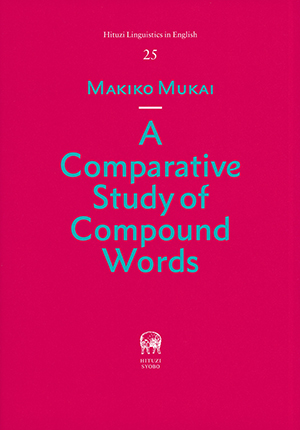2018年2月刊行

Hituzi Linguistics in English No.25
A Comparative Study of Compound Words
Makiko Mukai(向井真樹子著)
菊判上製カバー装 256頁 定価13000円+税
ISBN 978-4-89476-900-7
 |
Hituzi Linguistics in English No.25A Comparative Study of Compound WordsMakiko Mukai(向井真樹子著) 菊判上製カバー装 256頁 定価13000円+税 ISBN 978-4-89476-900-7 |


